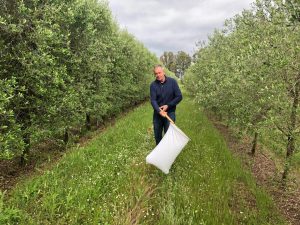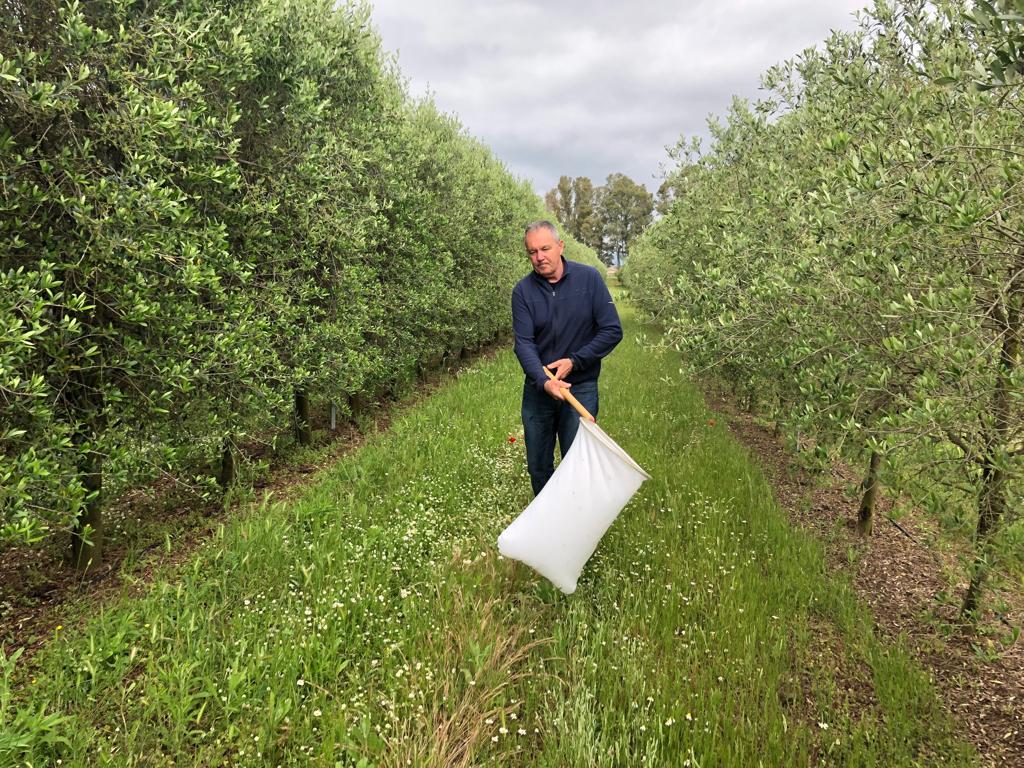Claudio Cantini, the researcher at the Italian National Research Council’s Institute of BioEconomy, is studying a sustainable solution to curb the spread of the disease, Xylella fast idiosa, which is associated with olive quick decline syndrome (OQDS).
idiosa, which is associated with olive quick decline syndrome (OQDS).
Preliminary results of a field trial demonstrated that the Beauveria bassiana fungus appeared to be beneficial against the meadow spittlebug, a known carrier of Xylella fastidiosa pauca. As part of the three-year project, Cantini started to monitor the presence of the meadow spittlebug in various olive groves in Follonica, Tuscany, where he noticed a high presence of this insect in some areas, with significant differences in population density between adjacent zones.
We believe that this experimentation could open new scenarios to the use of fungi against the carriers of Xylella and therefore the spread of the bacterium. I started to do little preliminary tests with products allowed in organic farming, based on the information gathered in Puglia. I knew that a product based on the fungus Beauveria bassiana, which attacks various types of insects, works well in a humid environment, and then I applied it, along with other products, on the foam produced by spittlebugs.
After a week, Claudio Cantini noticed that the fungus-based product had a greater effect than a pyrethroid insecticide used as a positive control, as in some cases the foam disappeared, in other cases, the number of insects decreased. The reduction compared to the control was 80 percent. The fungus germinated, produced hyphae, passed through the insect’s cuticle, penetrated and parasitized it, causing it to die.
“In my opinion, it is important to disseminate this type of solutions, especially in light of what is suggested by the European Food Security Agency, namely that it will be difficult to completely get rid of Xylella, and therefore it is necessary to carefully monitor the plants and the population of insects to curb the problem”.
